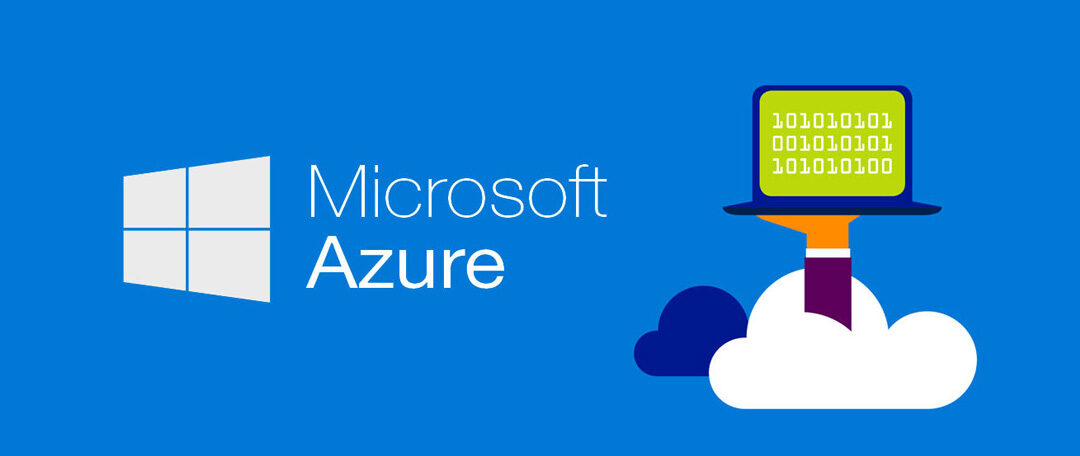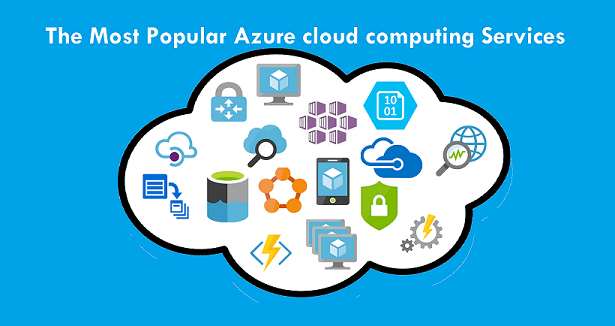Empower Your Digital Transformation with Microsoft Azure Cloud Service
Today, cloud computing applications and platforms are promptly growing across various industries, allowing businesses to become more efficient, effective, and competitive. In fact, these days, over 77% of businesses have some part of their computing infrastructure in the cloud.
Although, there are various cloud computing platforms available, one of the few platforms that lead the cloud computing industry is Microsoft Azure Cloud. Although, Amazon Web Services (AWS) is a leading giant in the public cloud market, Azure is the most rapidly-growing and second-largest in the world of computing.
What is Microsoft Azure?
Azure is a cloud computing service provided by Microsoft. There are more than six hundred services that come under the Azure umbrella. In simple terms, it is a web-based platform used for building, testing, managing and deploying applications and services.
- About 80% of Fortune 500 Companies are using Azure for their cloud computing requirements.
- Azure supports a multitude of programming languages, including Node JS, Java and C#.
- Another interesting fact about Azure is that it has nearly 42 data centers around the globe, which is the maximum number of data centers for any cloud platform.
A broad range of Microsoft’s Software-as-a-Service (SaaS), Platform-as-a-Service (PaaS) and Infrastructure-as-a-Service (IaaS) products are hosted on Azure. To understand these major cloud computing service models in detail, check out our other blog.
Azure provides three key aspects of functionality: Virtual Machine, app services and cloud services.
Virtual Machines
The virtual machines by Azure are one of many types of scalable, on-demand computing resources. An Azure virtual machine provides you with the flexibility of virtualization without the need of buying and maintaining the physical hardware that runs it.
App Services
Azure App Services is a service based on HTTP which is used for hosting web applications, mobile back ends, and REST APIs. It can be developed in your favourite language, be it JAVA, .NET, .NET Core, Node.js, Ruby, PHP or Python. Applications smoothly run and scale on both Windows and Linux-based environments.
Cloud Services
Azure Cloud Services is a form of Platform-as-a-Service. Similar to Azure App Service, the technology is crafted to support applications that are reliable, scalable, and reasonable to operate. Like App Services are hosted on virtual machines, so do Azure Cloud Services.
Various Azure services and how it works
Azure offers over 200 services, divided across 18 categories. These categories constitute computing, storage, networking, IoT, mobile, migration, containers, analytics, artificial intelligence and other machine learning, management tools, integration, security, developer tools, databases, security, DevOps, media identity and web services. Below, we have broken down some of these important Azure services based on their category:
Computer services
Azure Cloud Service: You can create measurable applications within the cloud by using this service. It offers instant access to the latest services and technologies required in the enterprise, enabling Azure cloud engineers to execute complex solutions seamlessly.
Virtual Machines: They offer Infrastructure-as-a-Service and can be used in diverse ways. When there is a need for complete control over an operating system and environment, VMS are a suitable choice. With this service, you can create a virtual machine in Linux, Windows or any other configuration in seconds.
Service Fabric: It is a Platform-as-a-Service which is designed to facilitate the development, deployment and management of highly customizable and scalable applications for the Microsoft Azure cloud platform. It simplifies the process of developing a micro service.
Functions: It enables you to build applications in any programming language. When you’re simply interested in the code that runs your service and not the underlying platform or infrastructure, functions are great.
Networking
Azure CDN: It helps store and access data on varied content locations and servers. Using Azure CDN (Content Delivery Network), you can transfer content to any person around the world.
Express Route: This service allows users to connect their on-premise network to the Microsoft Cloud or any other services using a private connection. ExpressRoute offers more reliability, consistent latencies, and faster speed than usual connections on the internet.
Virtual Network: It is a logical representation of the network in the cloud. So, by building an Azure Virtual Network, you can decide your range of private IP addresses. This service enables users to have any of the Azure services communicate with each other securely and privately.
Azure DNS: Name resolution is provided by Azure DNS, a hosting service for DNS domains that makes use of the Microsoft Azure infrastructure. You can manage your DNS records by utilising the same login information, APIs, tools, and pricing as your other Azure services if you host your domains in Azure.
Storage
Disk Storage: In Azure, VM uses discs as a storage medium for an operating system, programs, and data. A Windows operating system disc plus a temporary disc are the minimum numbers of discs present in any virtual machine.
File Storage: The main usage of Azure file storage is to create a shared drive between two servers or users. We’ll use Azure file storage in that situation. It is possible to access this managed file storage service via the server message block (SMB) protocol.
Blob Storage: Azure blob storage is essential to the overall Microsoft Azure platform since many Azure services will store and act on data that is stored in a storage account inside the blob storage. And each blob must be kept in its own container.
Benefits of using Azure
Application development: Any web application can be created in Azure.
Testing: After the successful development of the application on the platform, it can be easily tested.
Application hosting: After the testing, you can host the application with the help of Azure.
Create virtual machines: Using Azure, virtual machines can be created in any configuration.
Integrate and sync features: Azure enables you to combine and sync directories and virtual devices
Collect and store metrics: Azure allows you to collect and store metrics, enabling you to identify what works.
Virtual hard drives: As they are extensions of virtual machines, they offer a massive amount of data storage.
Bottom line
With over 200 services and countless benefits, Microsoft Azure Cloud is certainly the most rapidly-growing cloud platform being used by organizations. Incessant innovation from Microsoft allows businesses to respond quickly to unexpected changes and new opportunities.
So, are you planning to migrate your organization’s data and workload to the cloud? At CloudScaler, get instant access to the best services and technologies from the ground up, supported by a team of experts that keep you one step ahead in the competition.




